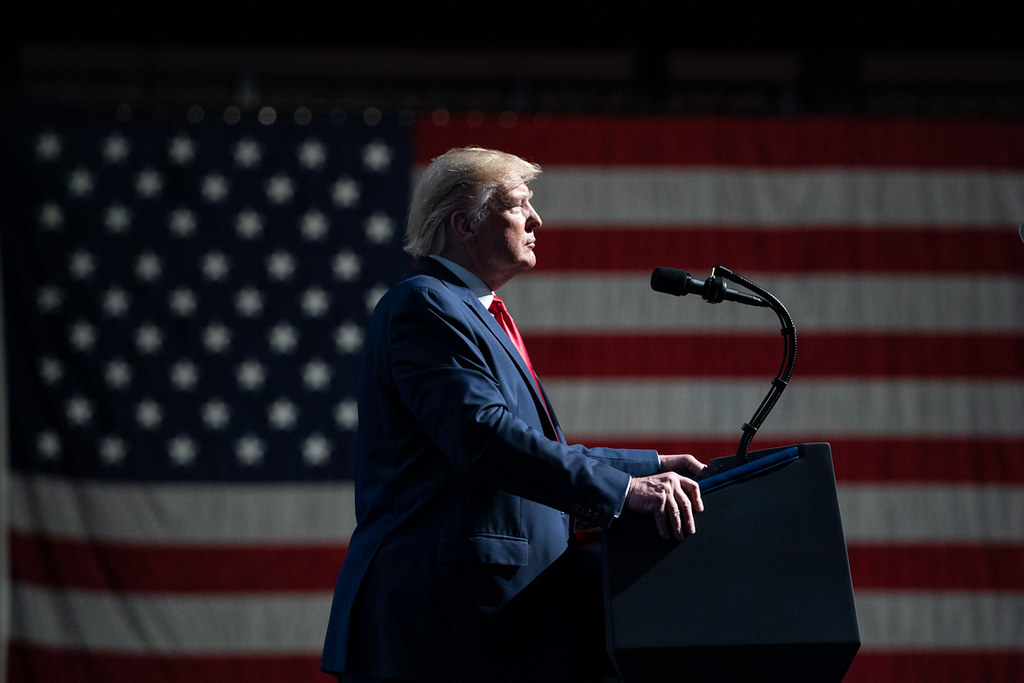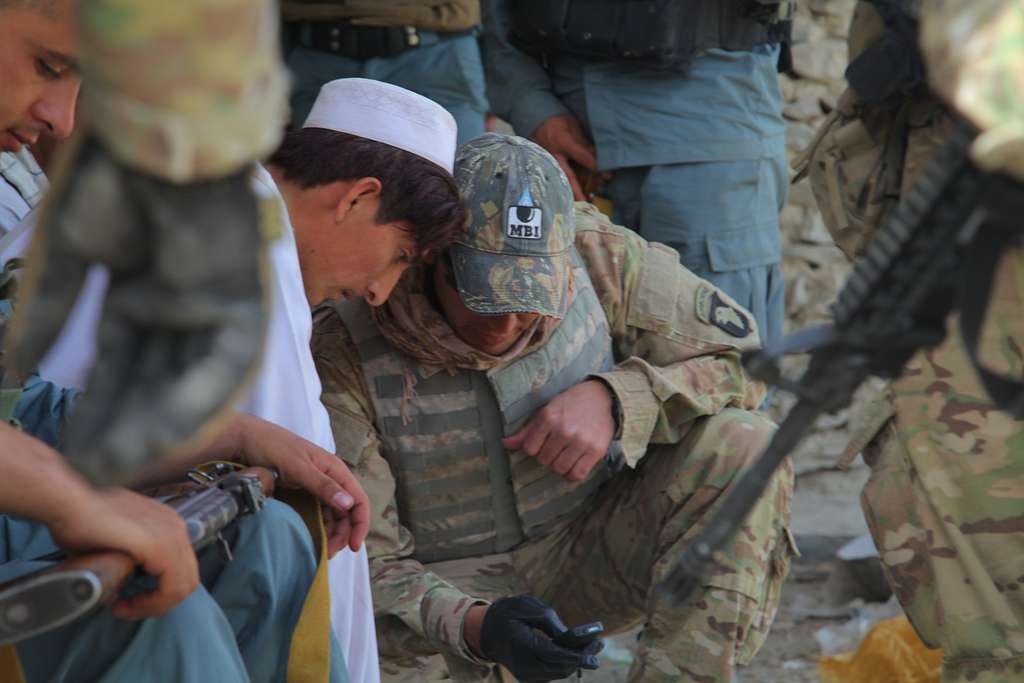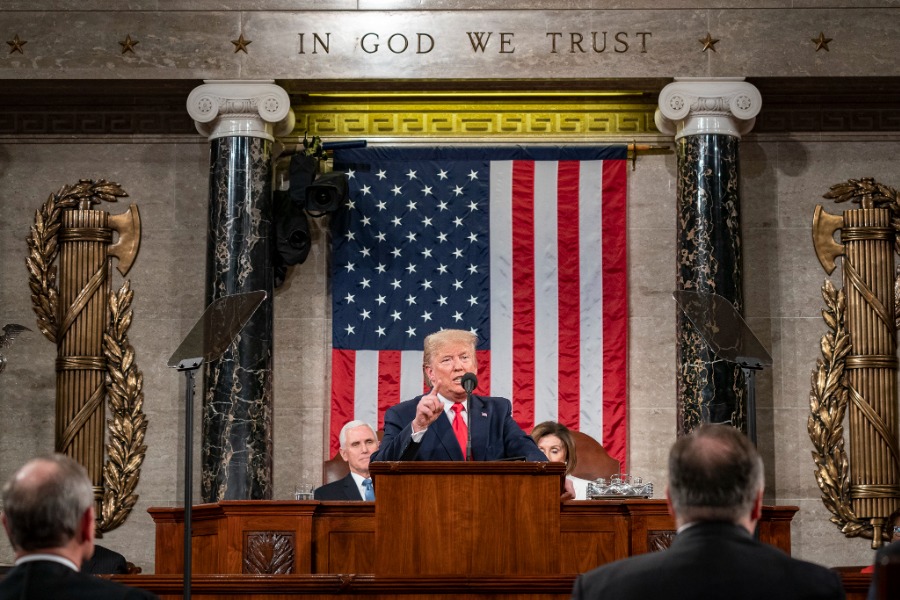The Soleimani Strike: One Person Decides
The United States—through presidential aggrandizement, as well as congressional delegation and acquiescence—has given the president discretion to use force in ways that can easily lead to a massive war.

Published by The Lawfare Institute
in Cooperation With

The U.S. drone strike in Iraq against the commander of Iran’s Quds Force, Qassem Soleimani, raises once again the question of legal constraints—under domestic and international law—on the president’s power to use force unilaterally. I have written a legal opinion in government and many, many pieces out of government on this issue, and over the years I have grown very cynical about the supposed legal constraints on those war powers. The general thoughts that follow, which build a bit on this Twitter thread, are born of that cynicism.
First, with the exception of the 1973 War Powers Resolution, which has always been a very weak constraint, practically all of the law in this area has been developed by executive branch lawyers justifying unilateral presidential uses of force. Unsurprisingly, executive branch lawyers view unilateral presidential power very broadly. The three most recent published opinions concern Libya (2011), Iraq (2014) and Syria (2018).
Second, Congress has done practically nothing since the War Powers Resolution to push back on these ever-broader constructions of executive power. Indeed, it has gone along with these constructions through appropriating for an ever-bigger and more powerful military. It has consistently and specifically appropriated money in support of the military operations under the 2001 Authorization to Use Military Force (AUMF) with the full knowledge that the executive branch (starting under President George W. Bush and continuing under President Obama) was using the AUMF as a justification for uses of force in multiple countries—and the knowledge that Obama interpreted the AUMF to apply to the Islamic State. Congress has continued to appropriate in support of U.S. military operations in several Middle Eastern countries even as those operations increasingly bumped up against Iranian proxies.
Third, the domestic-law basis for the killing of Soleimani is maddeningly complex, factually and legally. The law governing U.S. military operations throughout the Middle East rests on a combination of the 2001 AUMF; the 2002 AUMF, which authorizes force to address “the continuing threat posed by Iraq”; various appropriations; and Article II. And once we are there, Article II provides the president with very broad self-defense powers.
In analyzing the domestic-law legality of the strikes, there will be lots of focus on Office of Legal Counsel (OLC) opinions, noted above, that were written to justify the constitutionality of interventions in Libya, Iraq and Syria. These opinions were primarily about humanitarian intervention. They emphasized that the uses of force in Libya and Iraq and Syria did not require congressional authorization because (as the Syria opinion stated) “the anticipated hostilities would not rise to the level of a war in the constitutional sense.”
Some observers will claim that because the strike against Soleimani will foreseeably rise to the level of “war,” Congress needed to authorize the strikes for them to be lawful. Whether the hostilities anticipated in connection with the Soleimani strike does rise to the level of war is far from clear. But there are at least two reasons why these opinions, and this standard for congressional consultation, won’t come into play in the government’s justification for the Soleimani killing under U.S. law.
The first reason is that this strike will be justified as an Article II self-defensive action that, unlike the 2011-2018 opinions, rides atop the aforementioned affirmative authorizations to be in Iraq and fighting there and elsewhere in the region. There is a large legal difference between the president using force in self-defense in an ongoing authorized conflict and the president initiating a conflict, not authorized by Congress, for largely non-self-defensive reasons. The second reason is that there are other Bush-era OLC opinions—a 2001 opinion in reaction to 9/11, and a 2002 opinion justifying unilateral presidential force in Iraq—that take an extraordinarily broad view of the president’s constitutional powers in a context much closer to this case than the humanitarian intervention opinions. I wrote about these opinions and their broad conception of unilateral presidential power to deploy forces in self-defense here, in the context of North Korea. Note that the Bush administration and the Obama administration withdrew many OLC opinions issued during the Bush era. They did not withdraw these two opinions, which remain on the books. Whether and how the 2001 and 2002 opinions can be reconciled with the later ones is a hard question. But the 2001 and 2002 opinions remain as precedents, and the later opinions no more overrule them than the 2001 and 2002 opinions overruled yet earlier ones on which the 2011-18 opinions rely.
Fourth, the international law picture is also murky, though the argument here in support of the strike is harder to make. The United States is in Iraq, where the strike took place, more or less with Iraq’s consent. That consent extends to at least some military operations in Iraq. But does it extend to the targeted killing of Soleimani? According to the Wall Street Journal, “Iraqi Prime Minister Adel Abdul-Mahdi condemned the targeted killing as a violation of the terms underpinning the U.S. troop presence in the country.” (See also this harsh condemnation of the U.S. action by the Iraqi prime minister.)
But it would not surprise me to see the administration invoke the “unwilling or unable” gloss on self-defense here. This gloss, which remains highly contested, would allow the United States to redress Soleimani’s threat to U.S forces and other U.S. persons in Iraq (and perhaps elsewhere) if the Iraq government was unwilling or unable to address the threat. It might seem bizarre to use the “unwilling or unable” doctrine to kill the military leader of Iran, at the Baghdad airport, for threats to U.S. forces and persons inside Iraq, if Iraq consented to the U.S. presence but not to this type of strike. But the whole point of the doctrine—which had a long pre-history but really found its legs under the Obama administration—is that it justifies self-defensive uses of force in the absence of sovereign consent. The functional justification for using force against Soleimani to protect U.S. persons in Iraq and elsewhere from his terrorist or military threats is functionally no different from the Obama administration’s justification for using force in Syria in 2014 in the face of threatened terrorist attacks from within the country: The relevant government is “unwilling or unable to prevent the use of its territory for such attacks” against U.S. persons.
Nothing I have said is meant to state definitively whether the Soleimani strike was lawful or not, under domestic or international law. The issue is complicated and contested—much more so than I have outlined here. But despite these complications and contestations, the executive branch will have an easy time justifying the strike under extant opinions, because for many years it has staked out ever-broader theories of presidential uses of force under both domestic and international law. Both parties in Congress have gone along with this expansion of presidential war power, especially with regard to the complex Middle East wars.
In short, our country has—through presidential aggrandizement accompanied by congressional authorization, delegation, and acquiescence—given one person, the president, a sprawling military and enormous discretion to use it in ways that can easily lead to a massive war. That is our system: One person decides.





